This article is brought to you by Datawrapper, a data visualization tool for creating charts, maps, and tables. Learn more.
Data Vis Dispatch,
October 5
The best of last week’s big and small data visualizations
Welcome back to the 16th edition of Data Vis Dispatch! Every week, we’ll be publishing a collection of the best small and large data visualizations we find, especially from news organizations — to celebrate data journalism, data visualization, simple charts, elaborate maps, and their creators.
Recurring topics this week include the pandemic, La Palma, and the Pandora papers.
The breaking news of this week was the release of the Pandora papers — a huge leak of compromising documents from 14 offshore financial services firms:
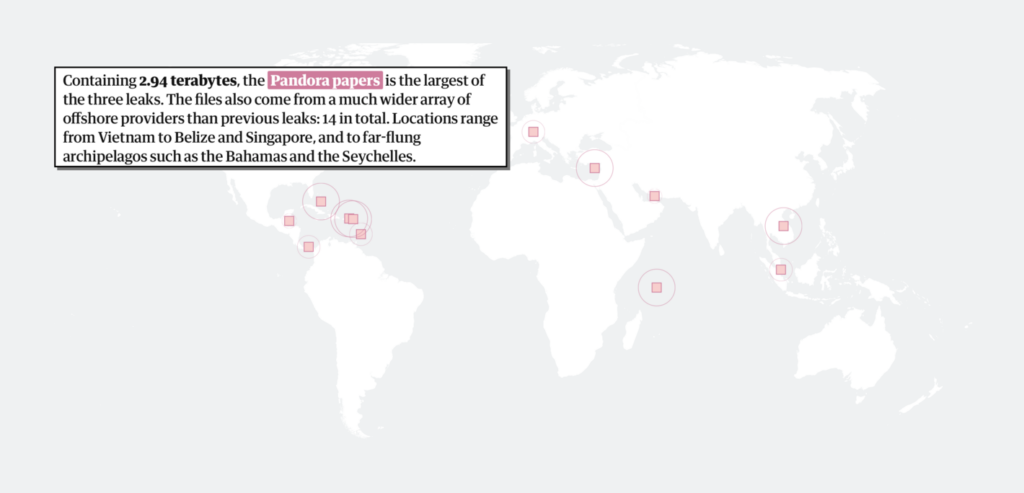
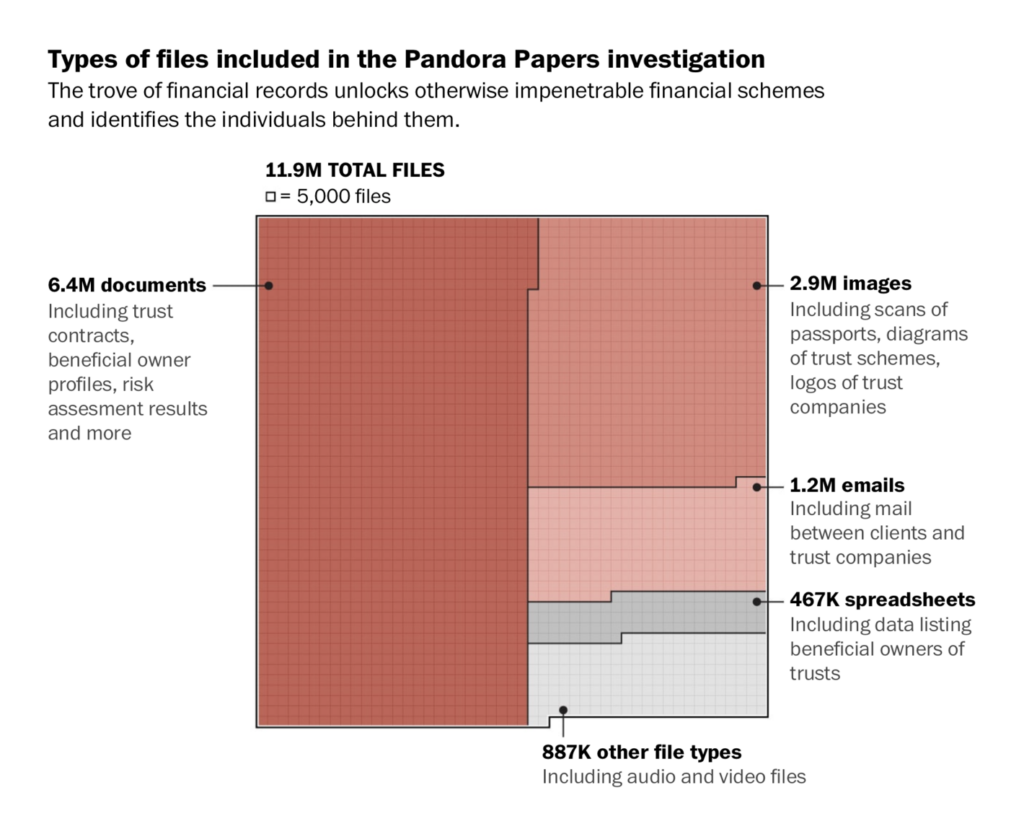
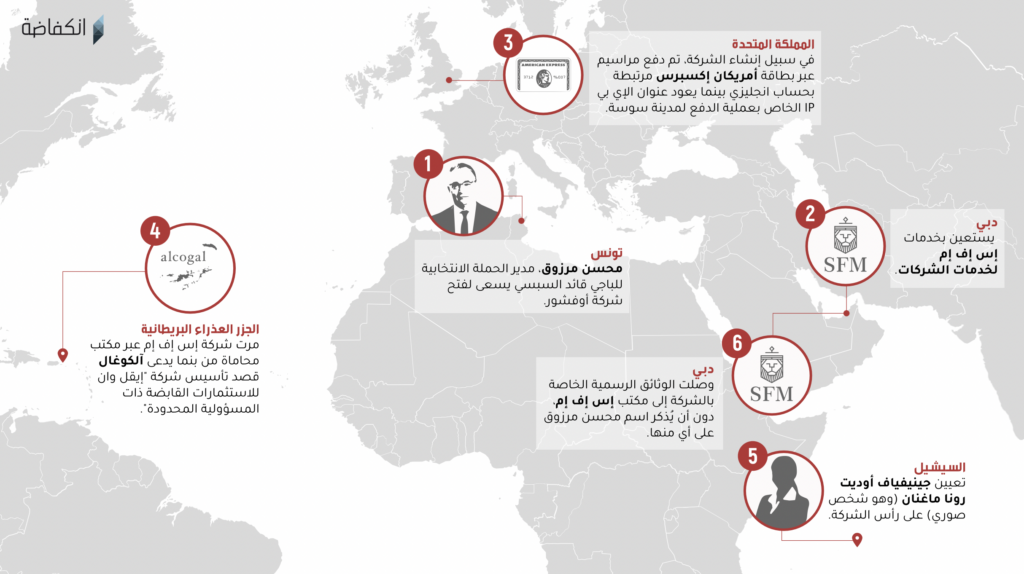
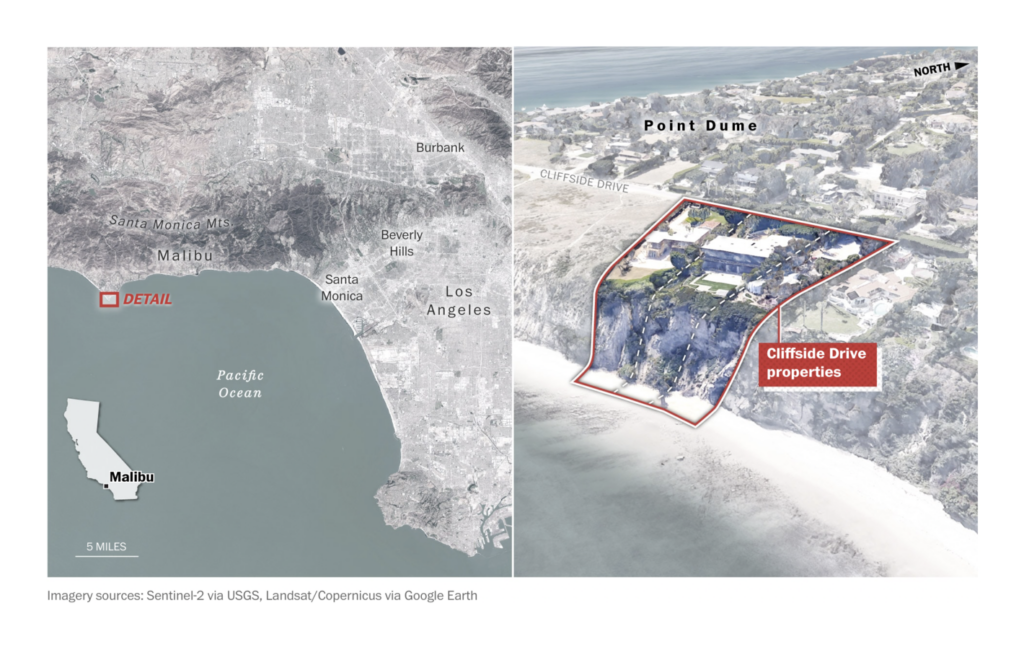
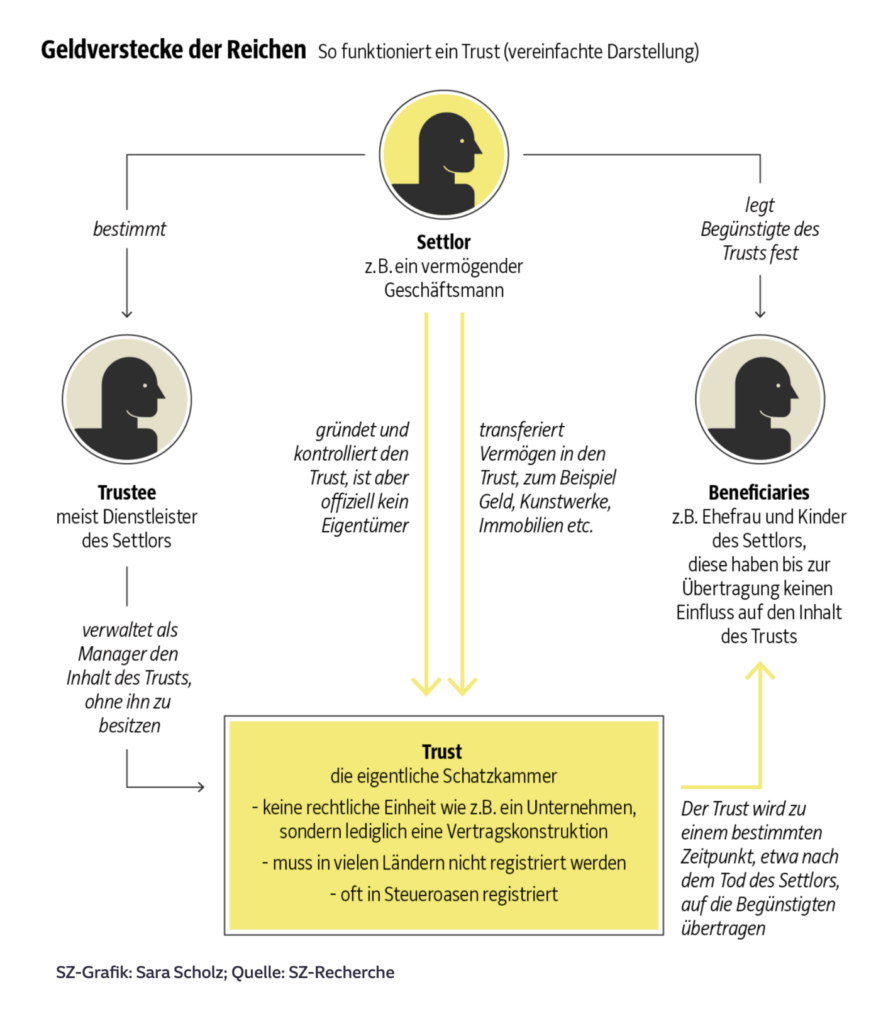

If not for that surprise, elections would have once again made the top story. Several newsrooms dug deeper into Germany’s recent results to see which voters — by age, gender, and geography — were responsible for the gains of the Greens and FDP:
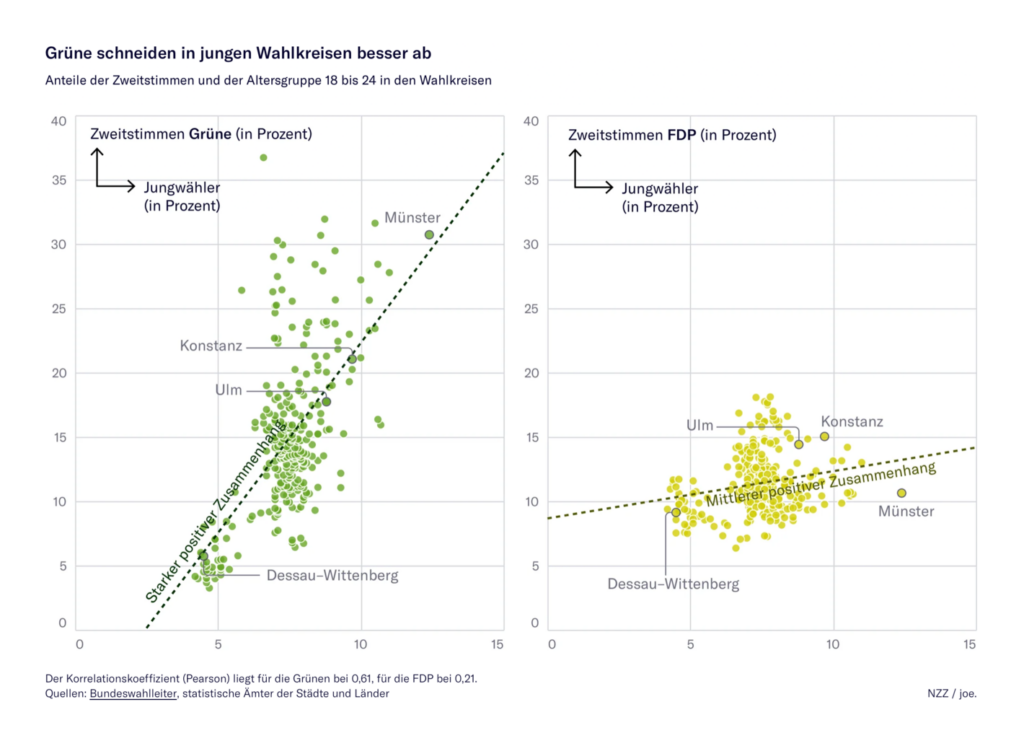
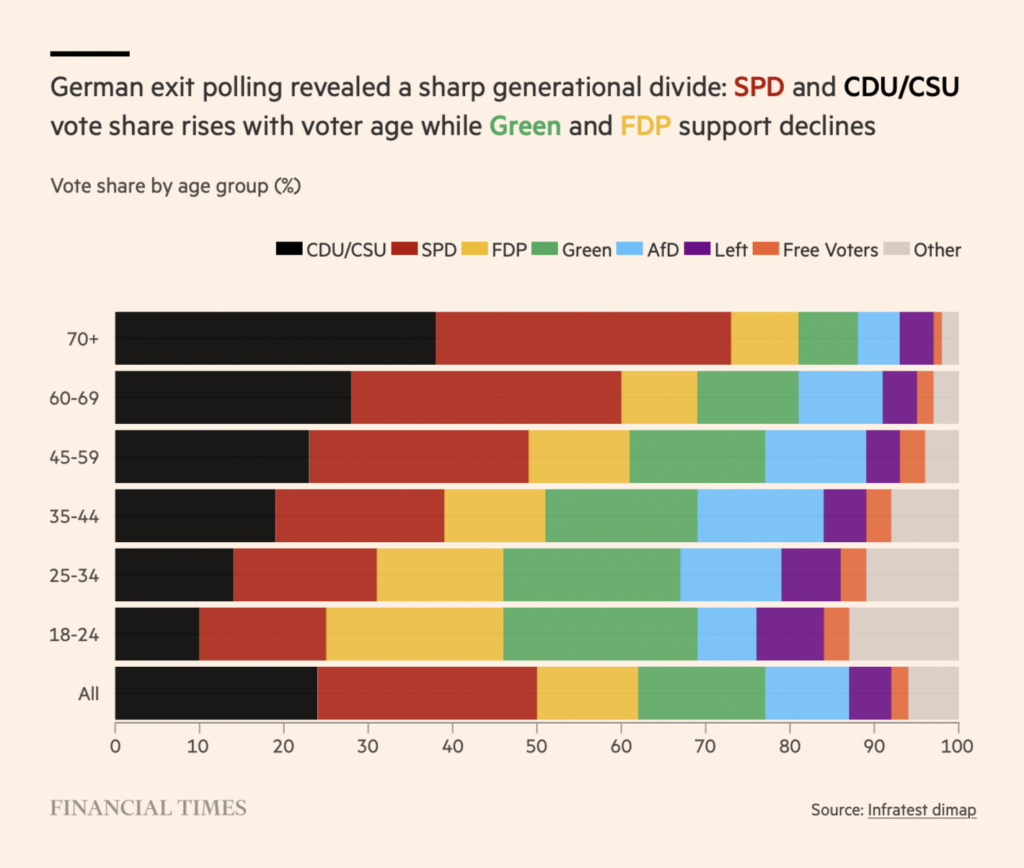
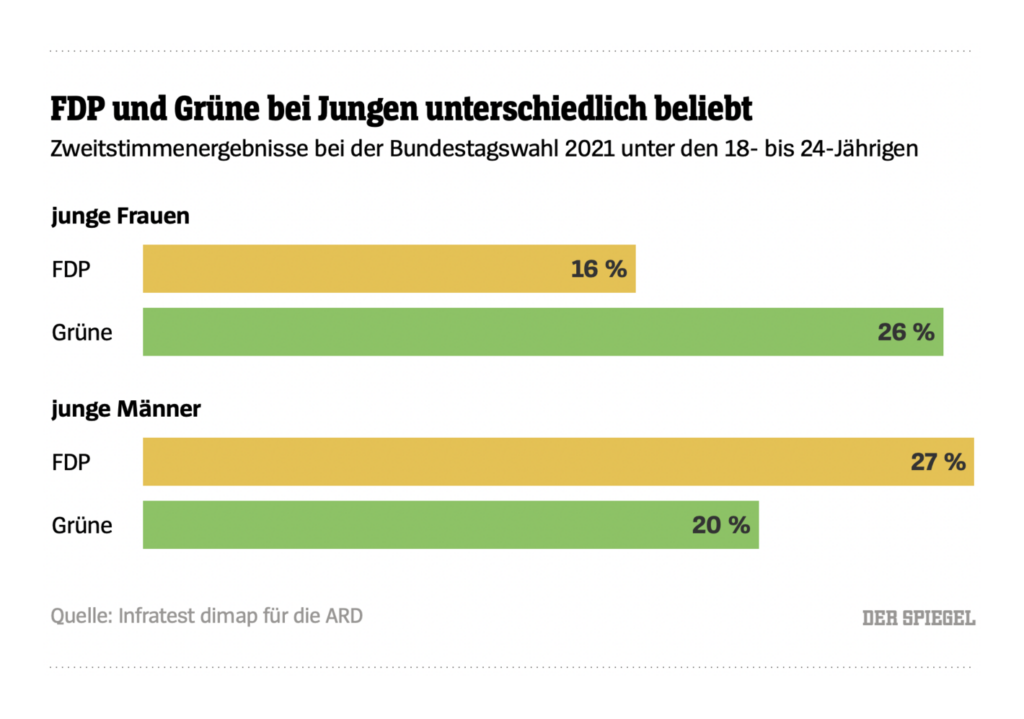
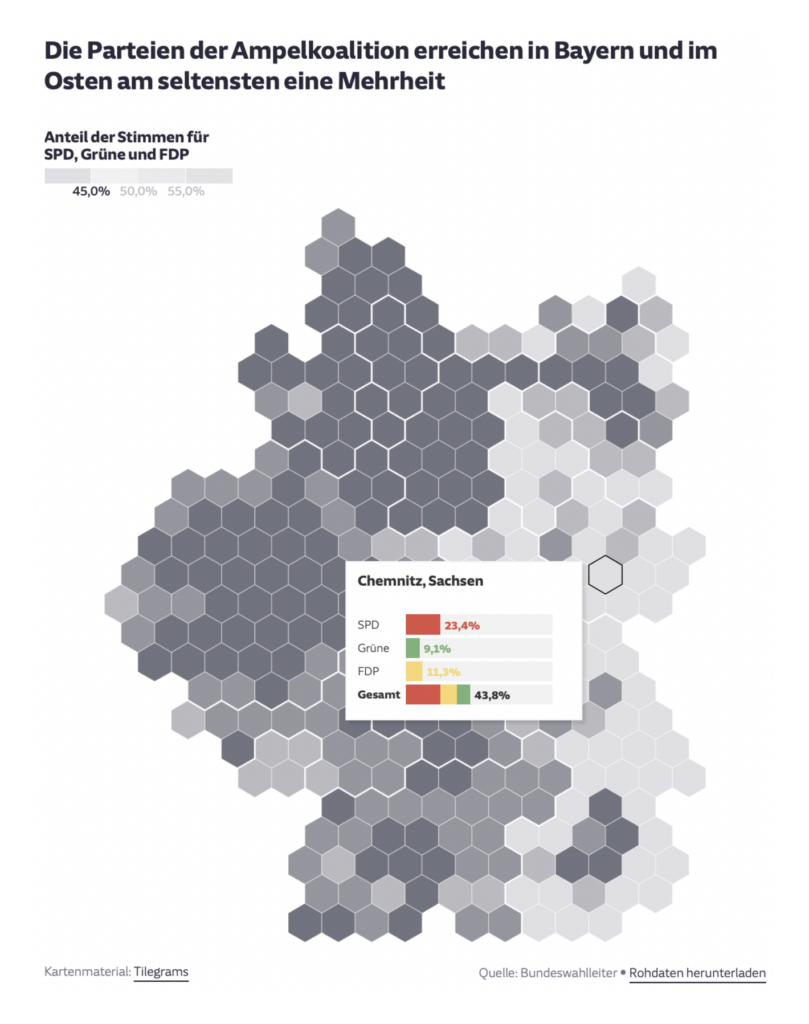
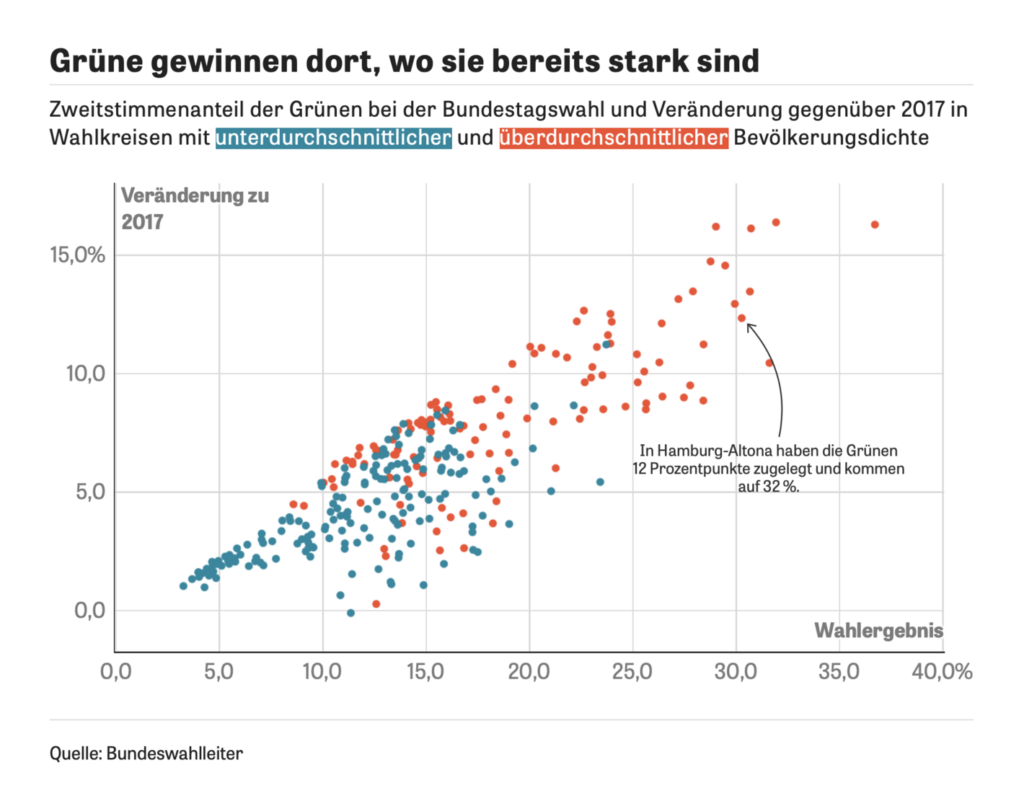
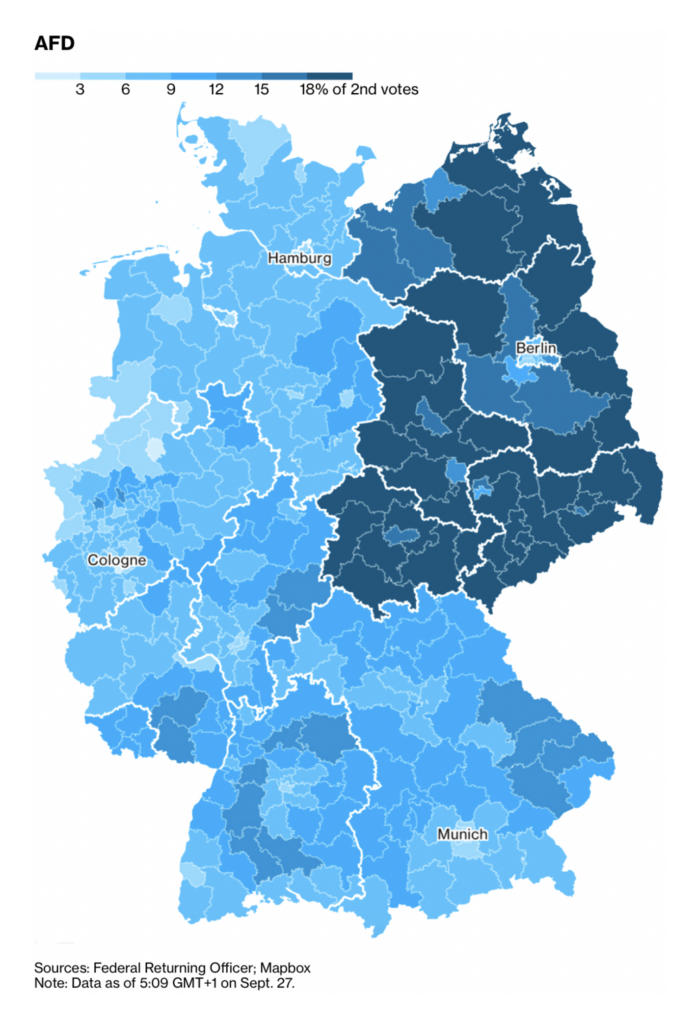
Other electoral maps looked even farther back in time — to 2012 U.S. partisan geography, 30 years of Swiss party leaders by gender, and the 2019 European elections (inspired by last week’s coalition stripes in Der Spiegel):
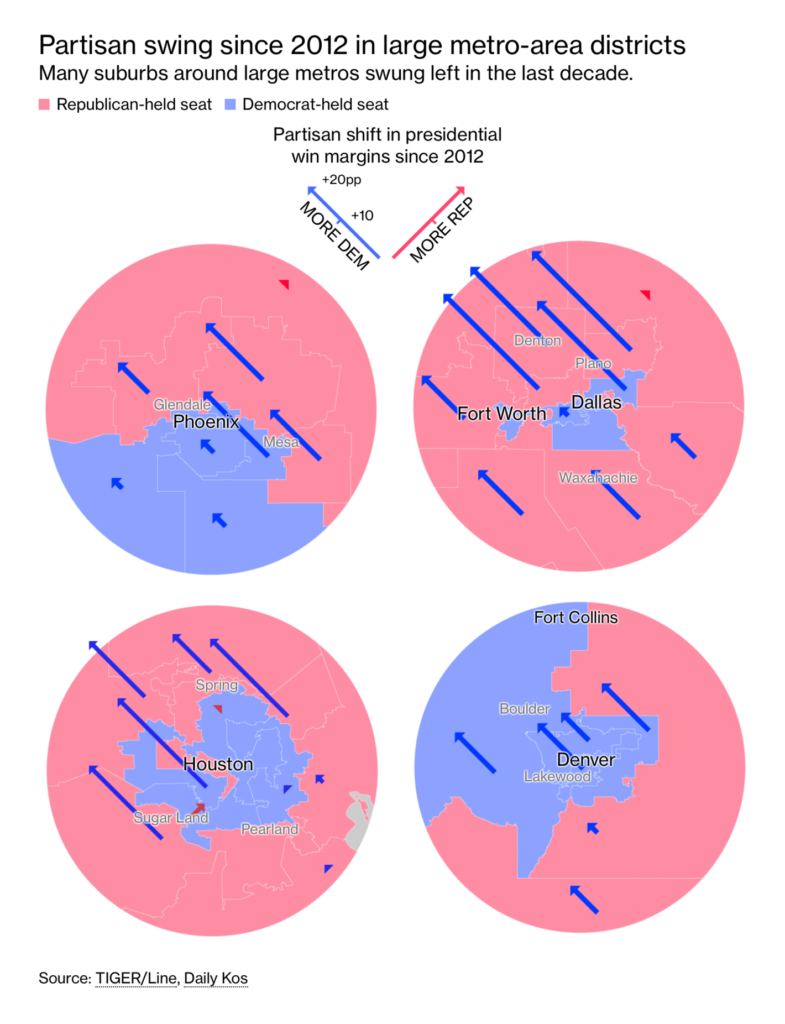
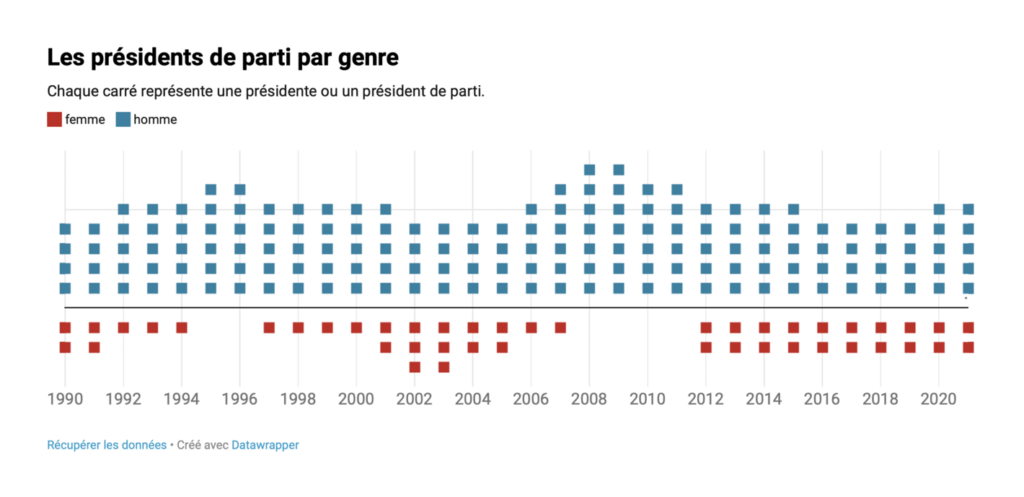
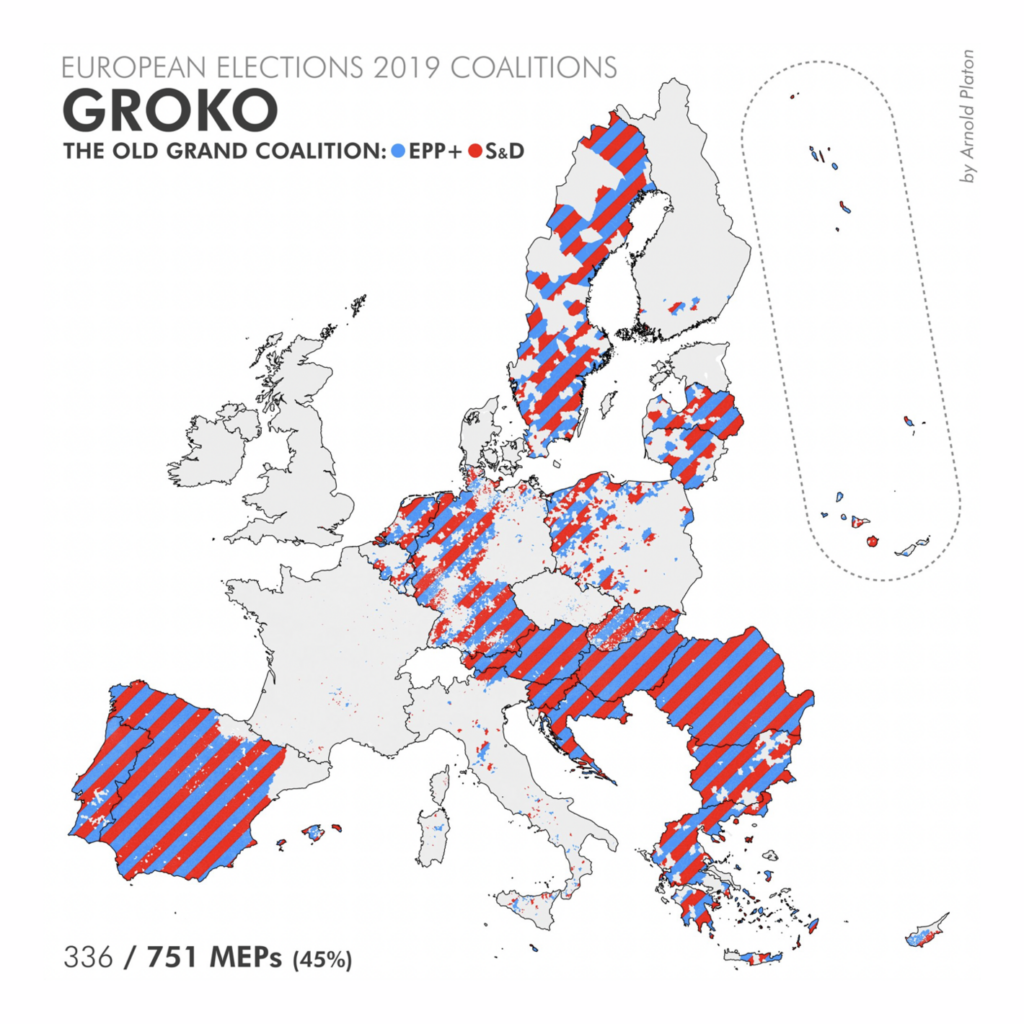
COVID news this week focused on the uneven pace of vaccination. The likelihood that you’ve already gotten a vaccine depends a lot on your continent, country, and even neighborhood:
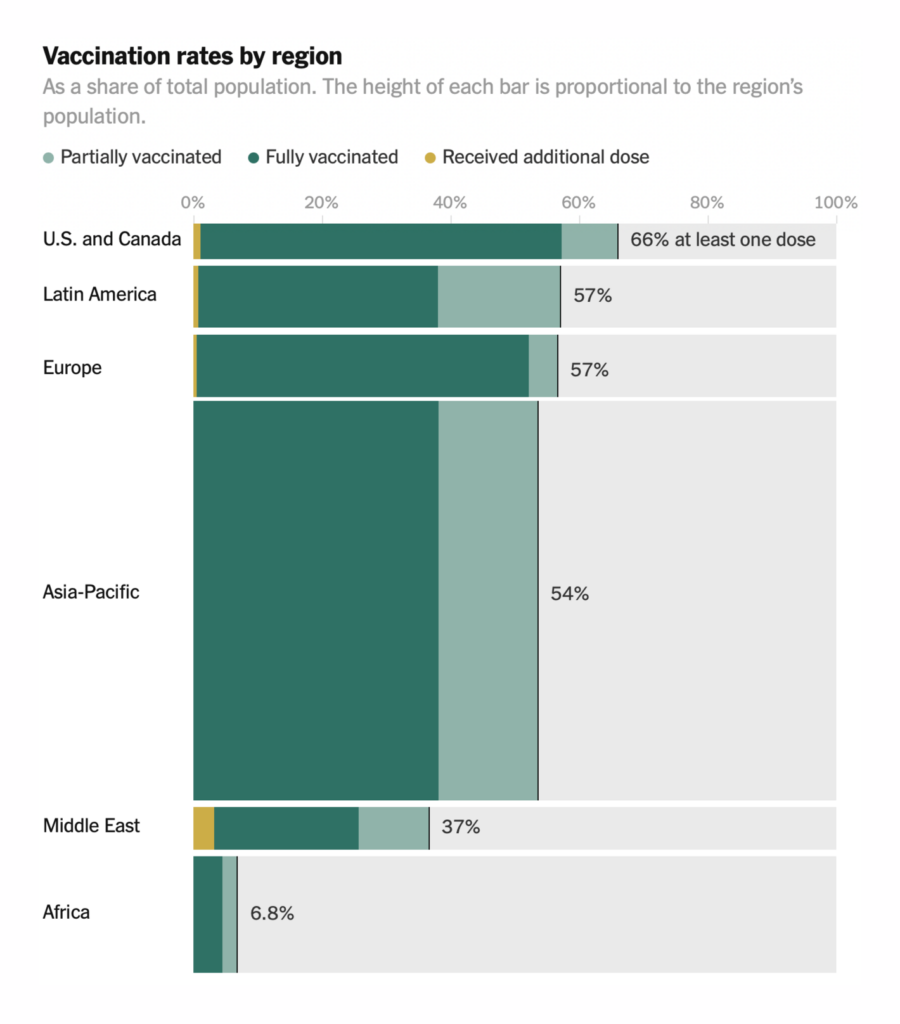
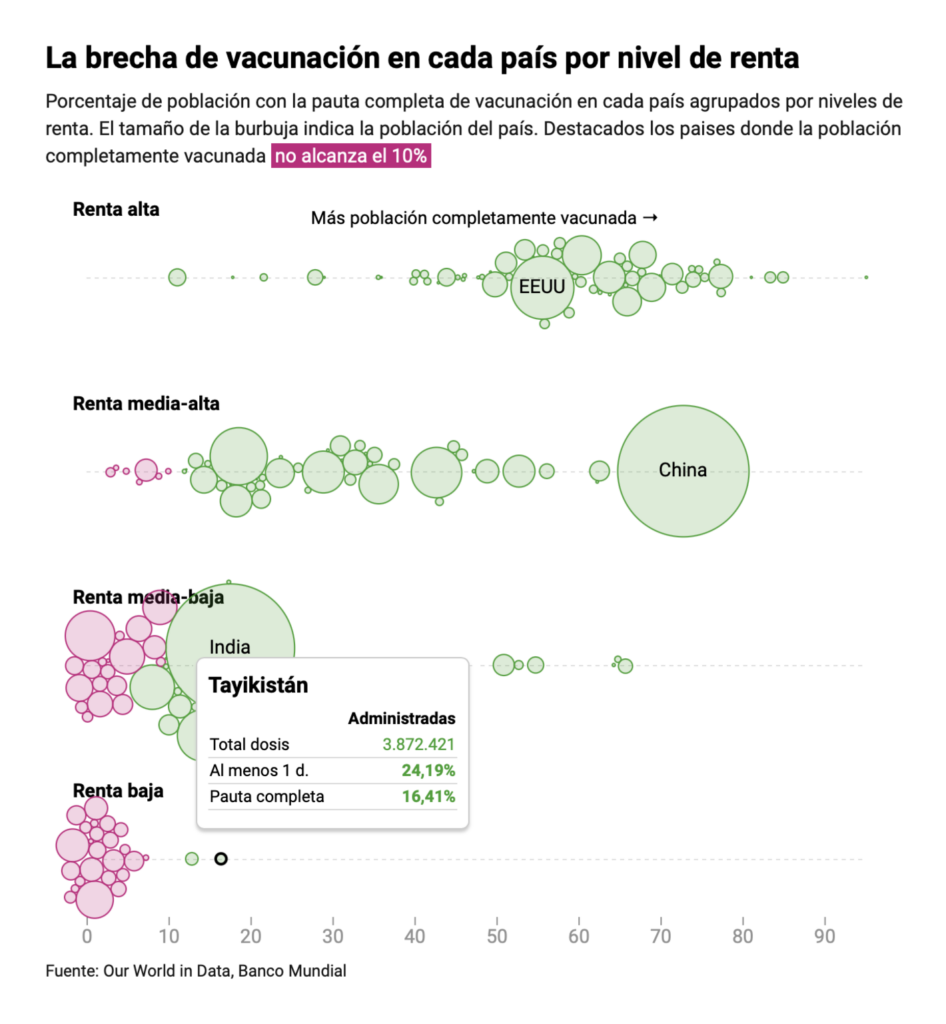
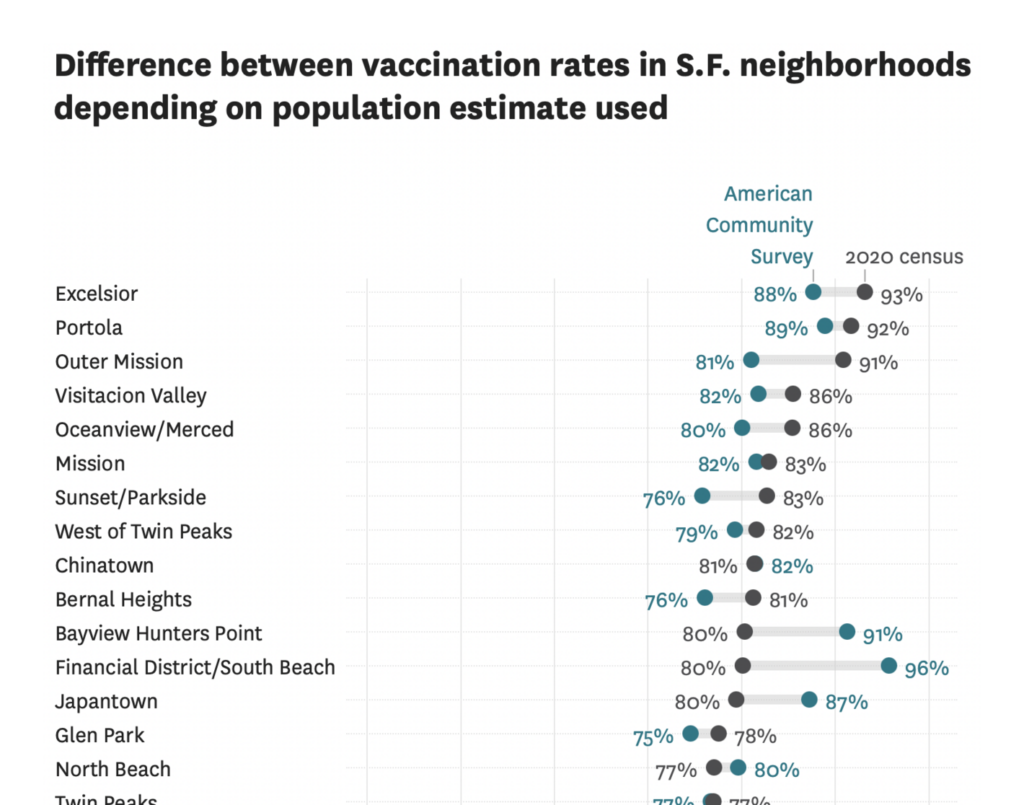
The good news: we can save a lot of lives by directing vaccines towards the most vulnerable and adopting policies that encourage reluctant people to take them.
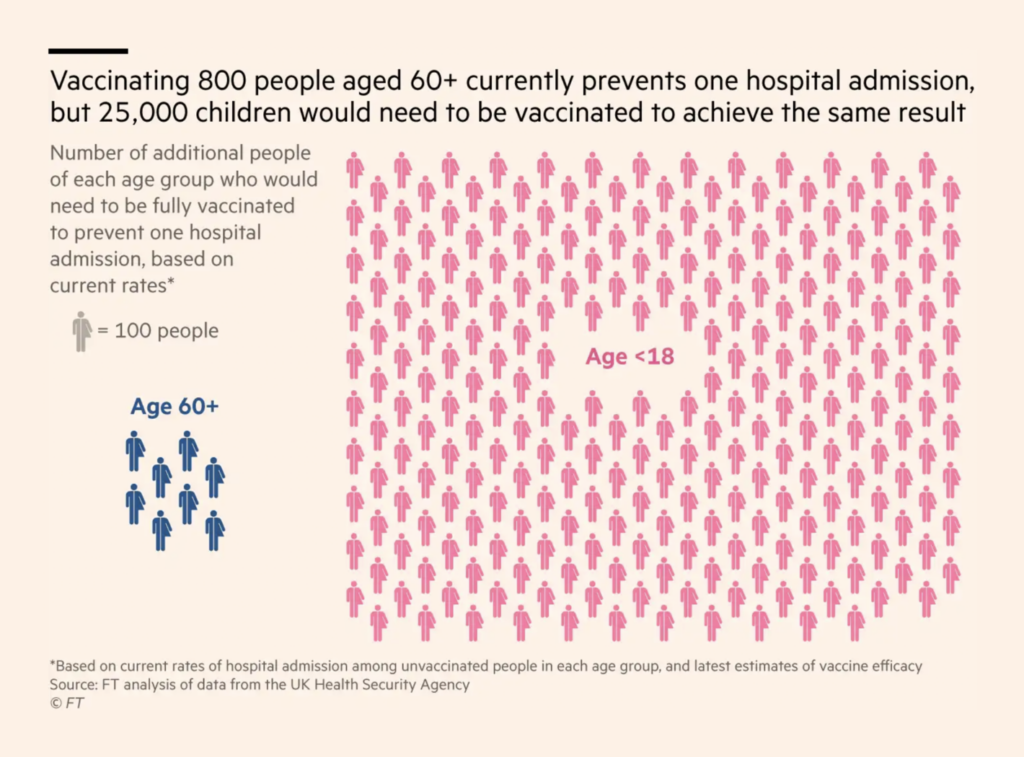
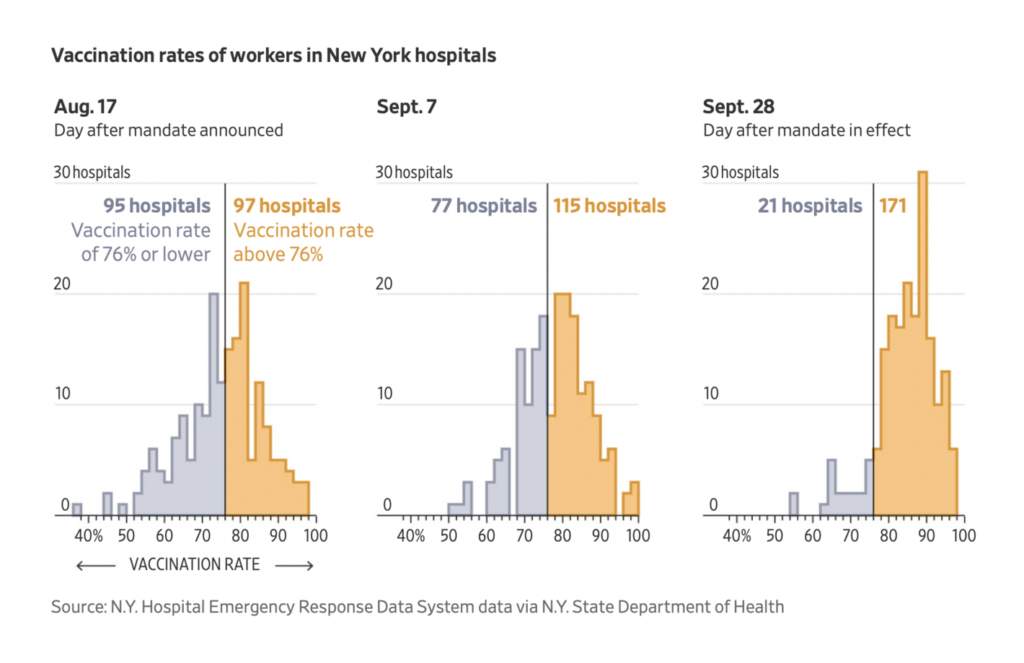
But nothing can change what’s already happened: deaths on a scale so great, they wiped out many countries’ years of public health progress.
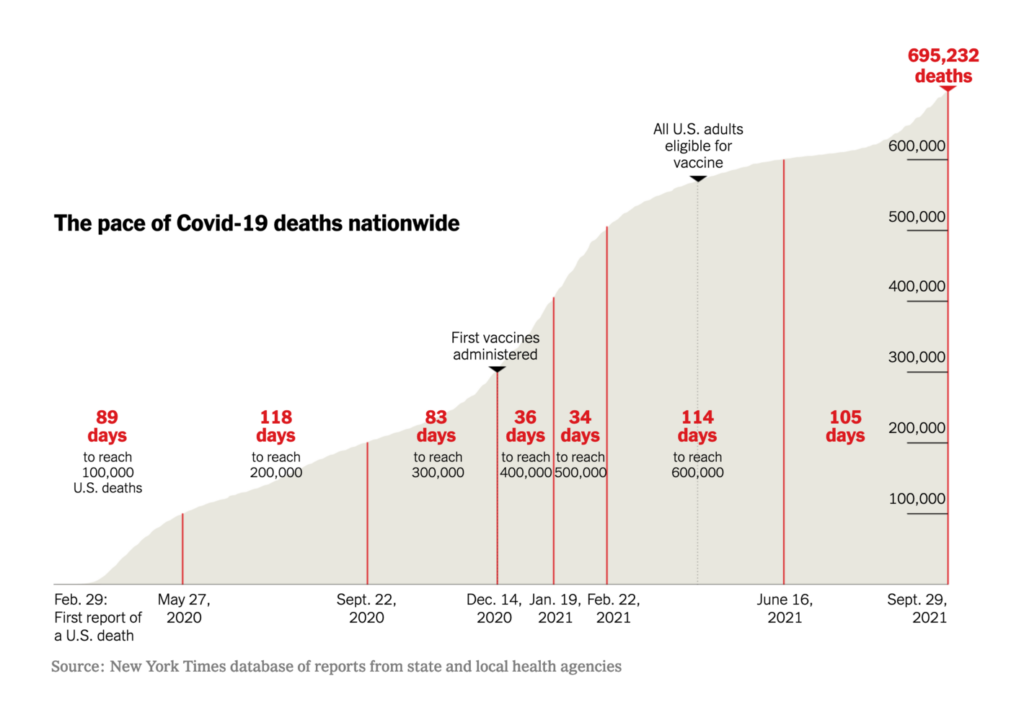
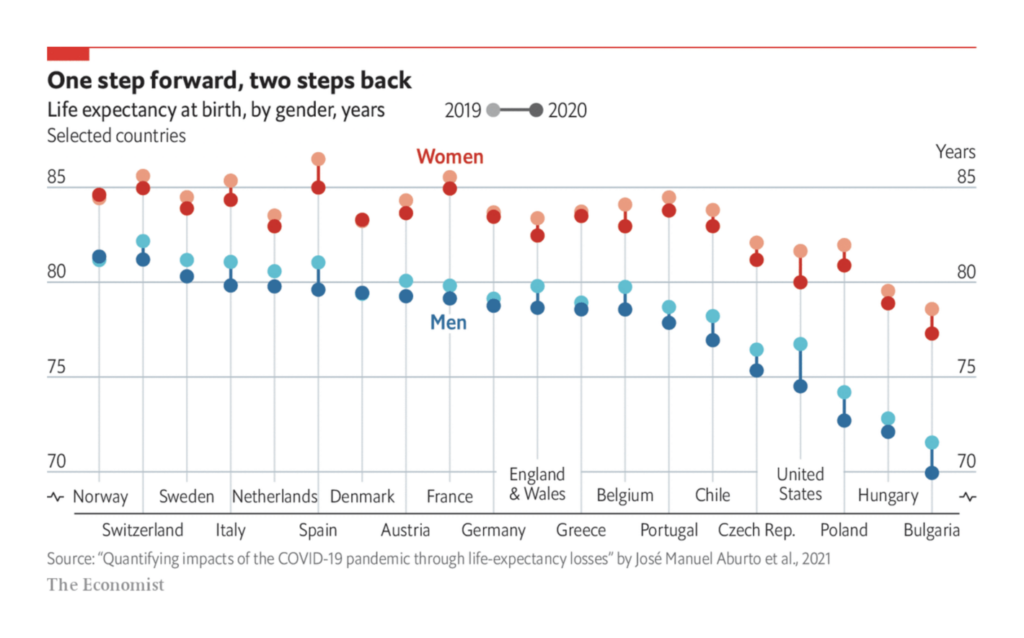
As many countries try to get back to normal, we’re seeing more assessments of the policy choices of the pandemic era — and of its ongoing economic disruptions:
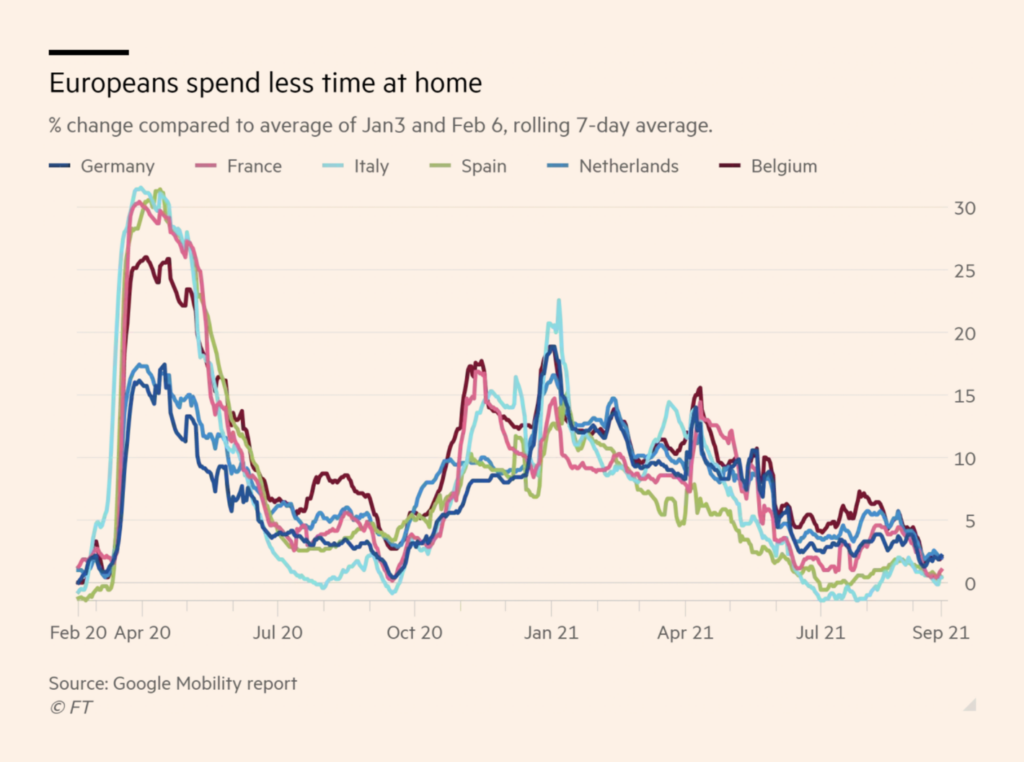
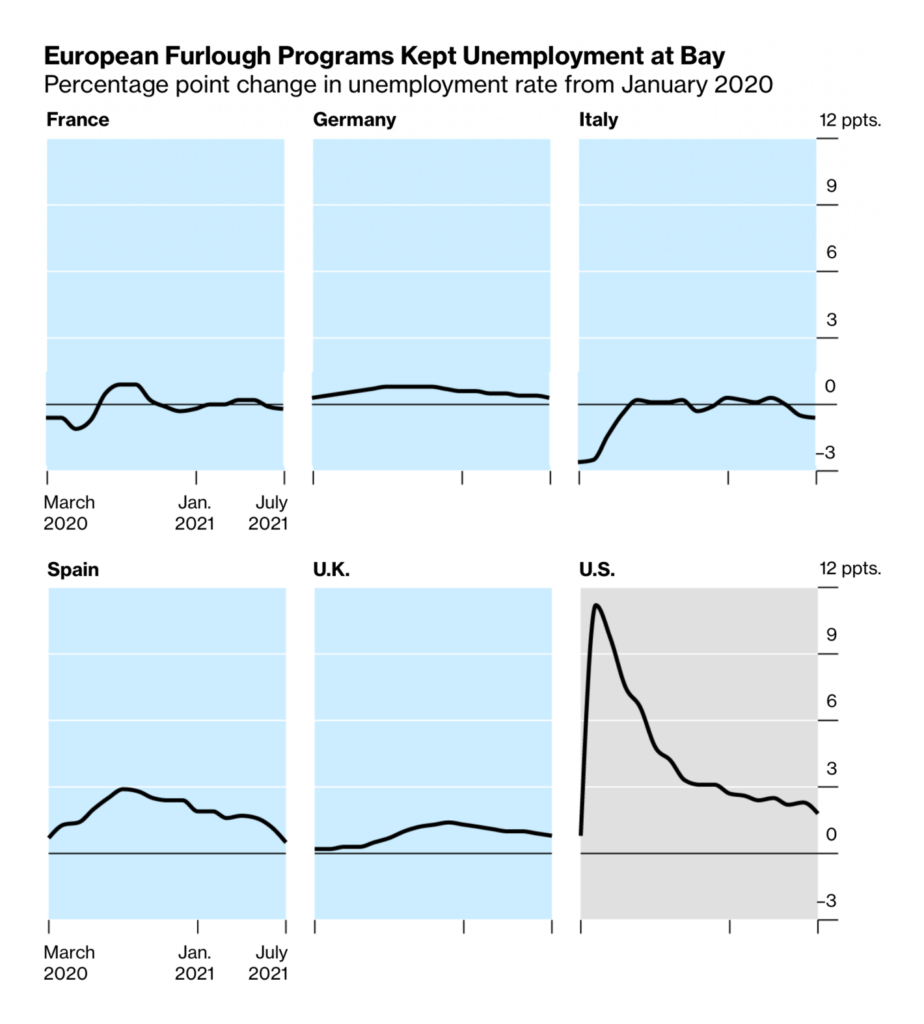
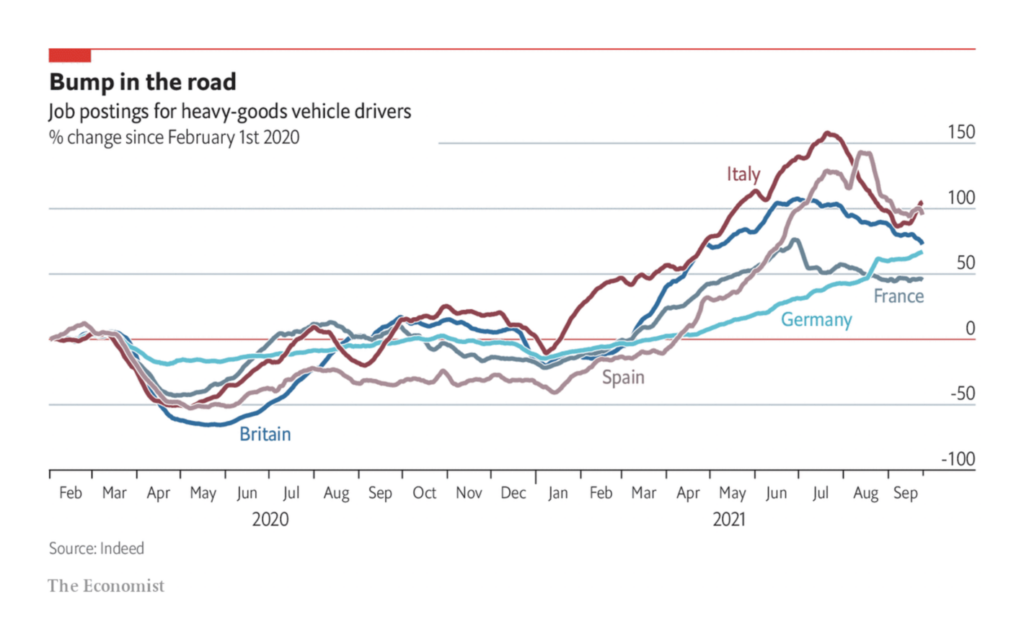
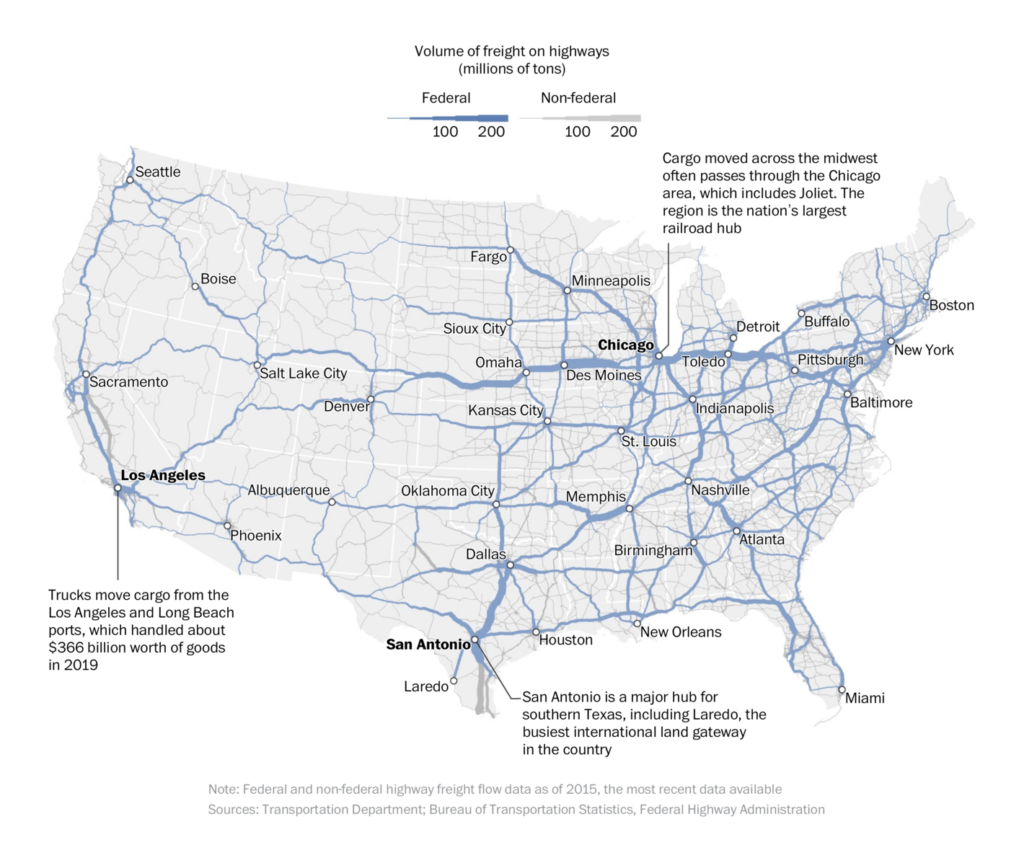
In climate this week, there was a little spotlight on food production and consumption:
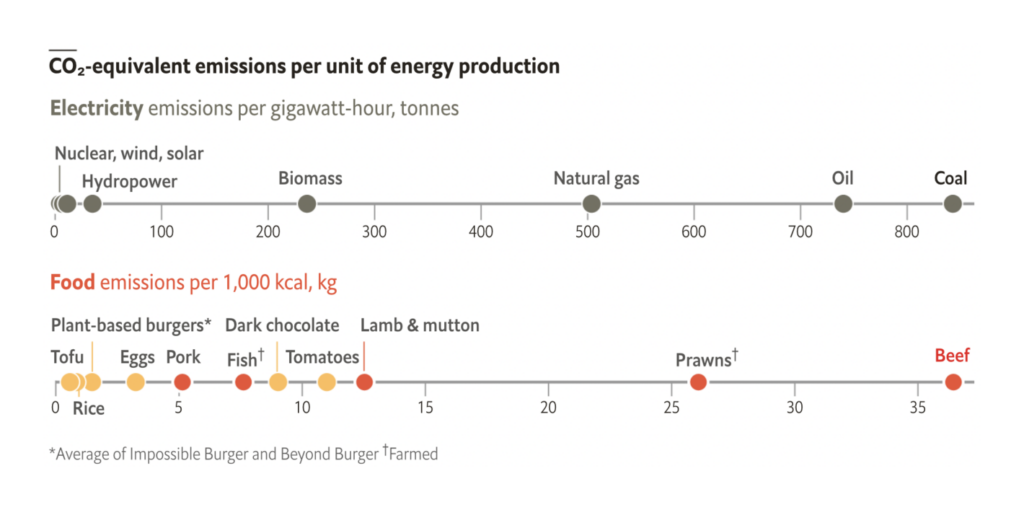
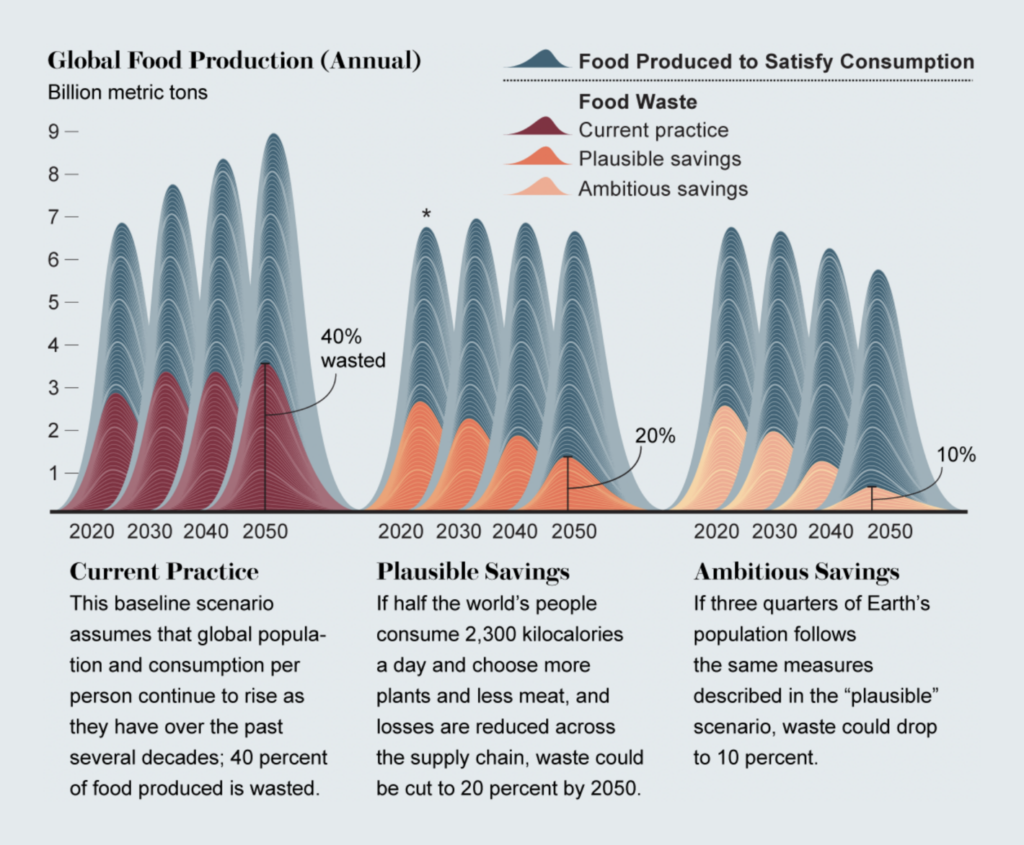
We also saw charts on the time scale of climate change — how the effects of both good and bad policy take generations to be fully realized:
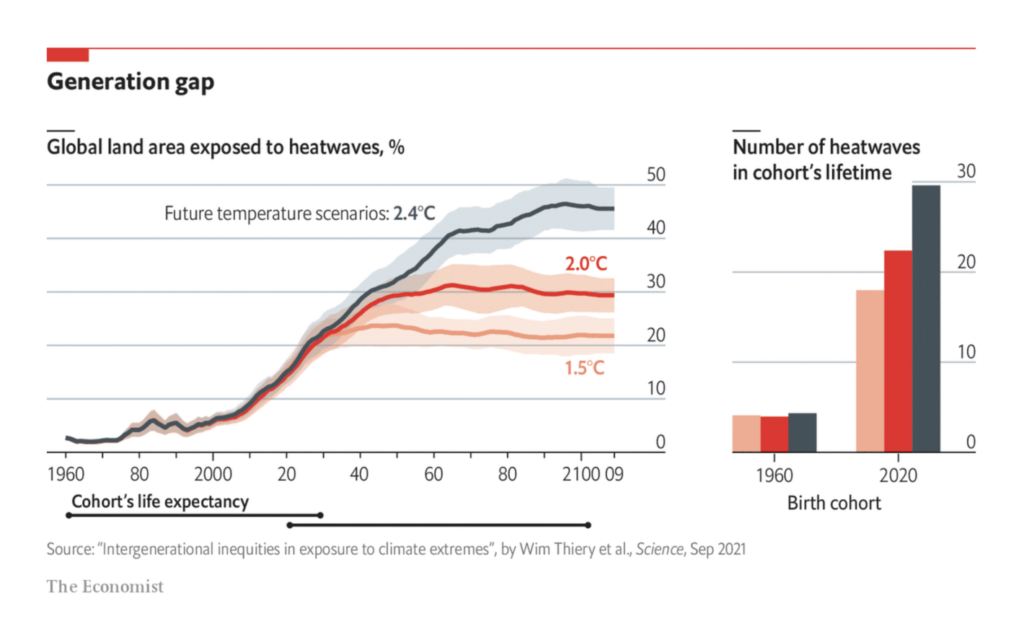
The volcanic eruption on La Palma earned the title “natural disaster of the week” for the third time running:
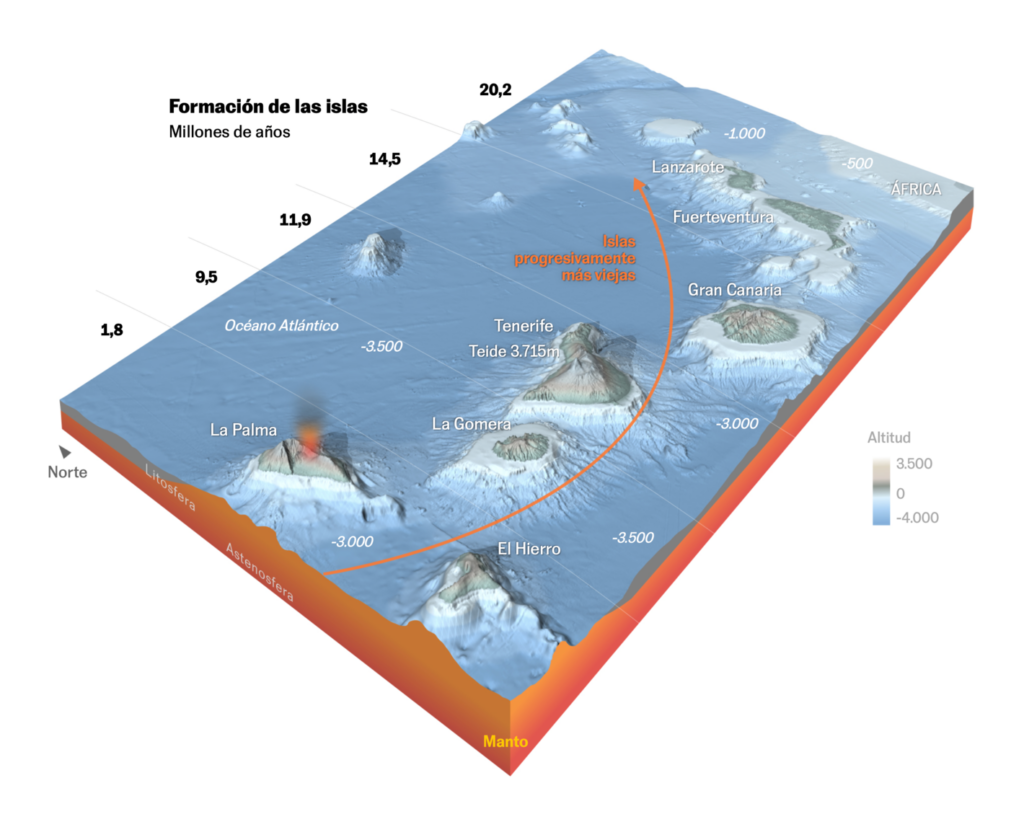
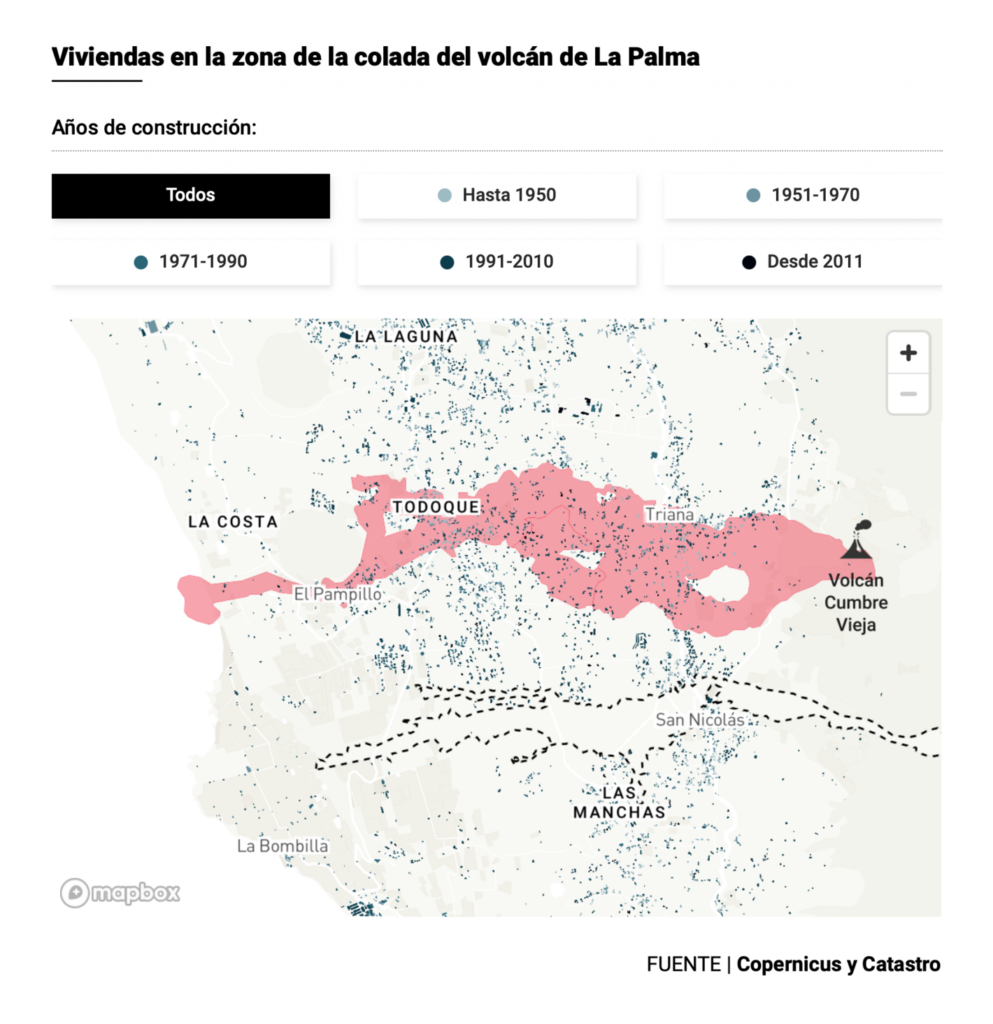
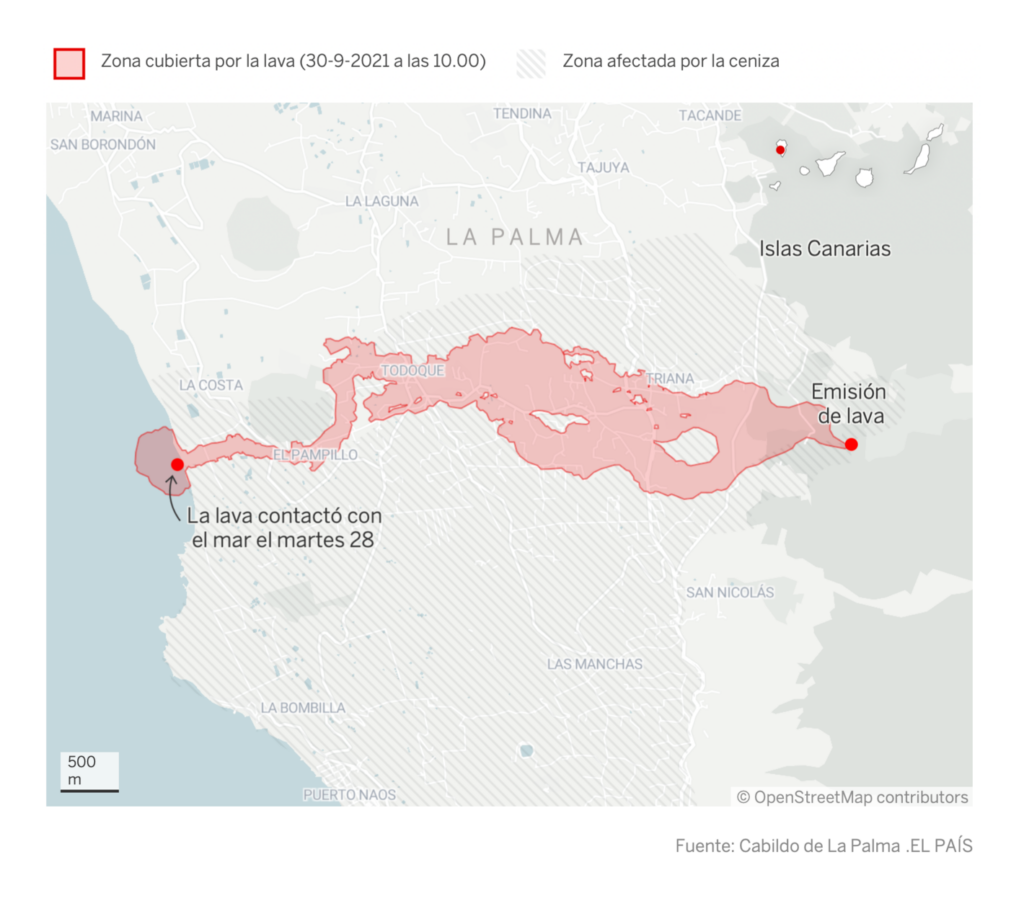
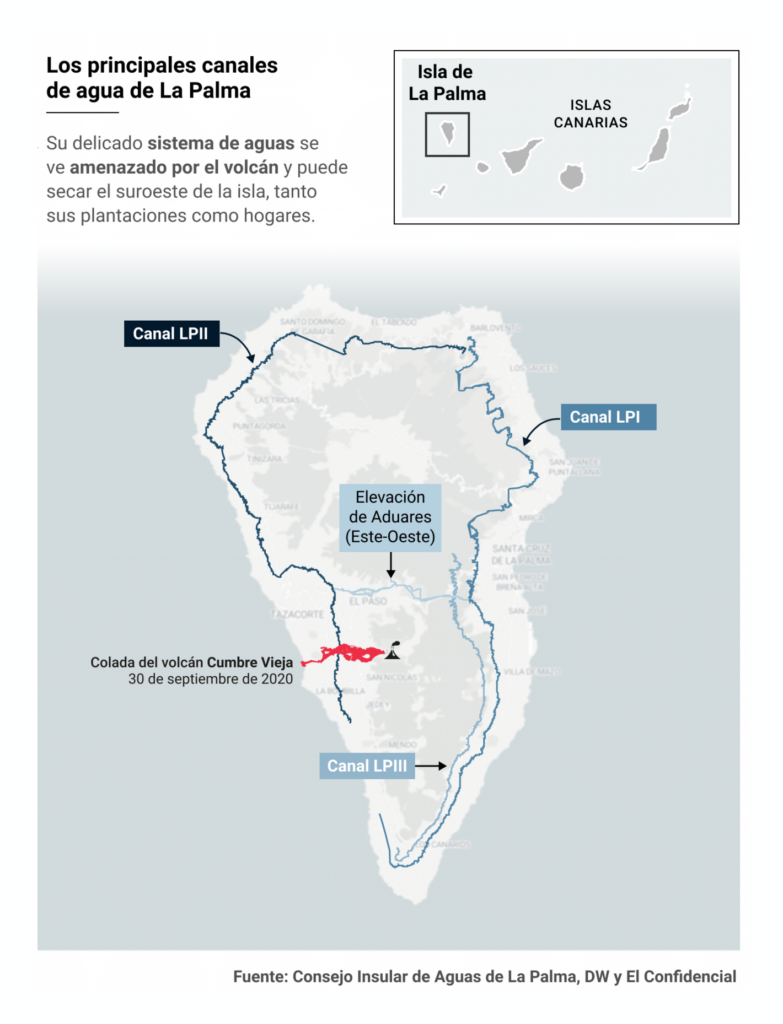
And we also saw charts on hurricanes in the Atlantic — why they happen and why they’re hard to predict:

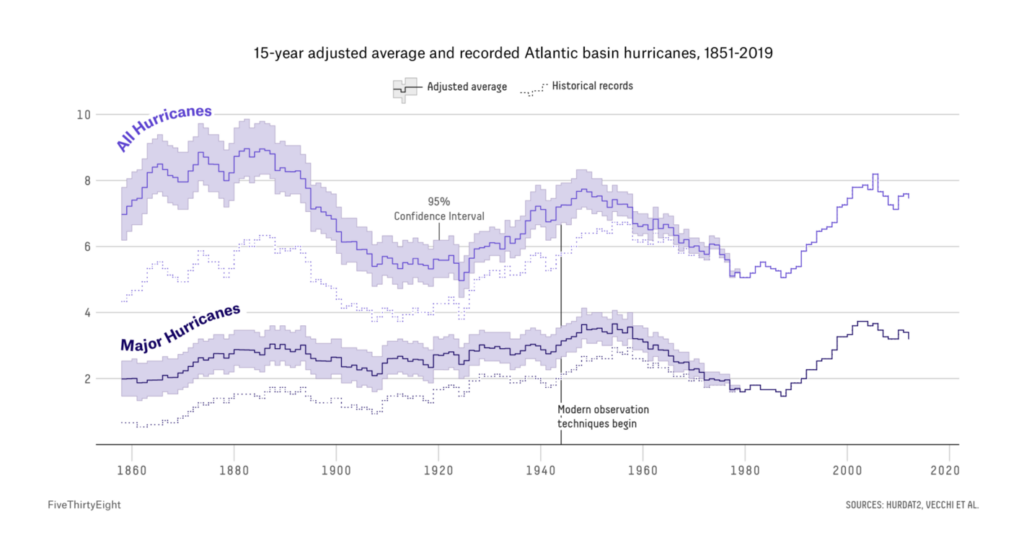
Now we’ll rest for a bit in the “lighter note” section — where we keep vis of sports, urban density, and where to get off the train for coffee in Japan:

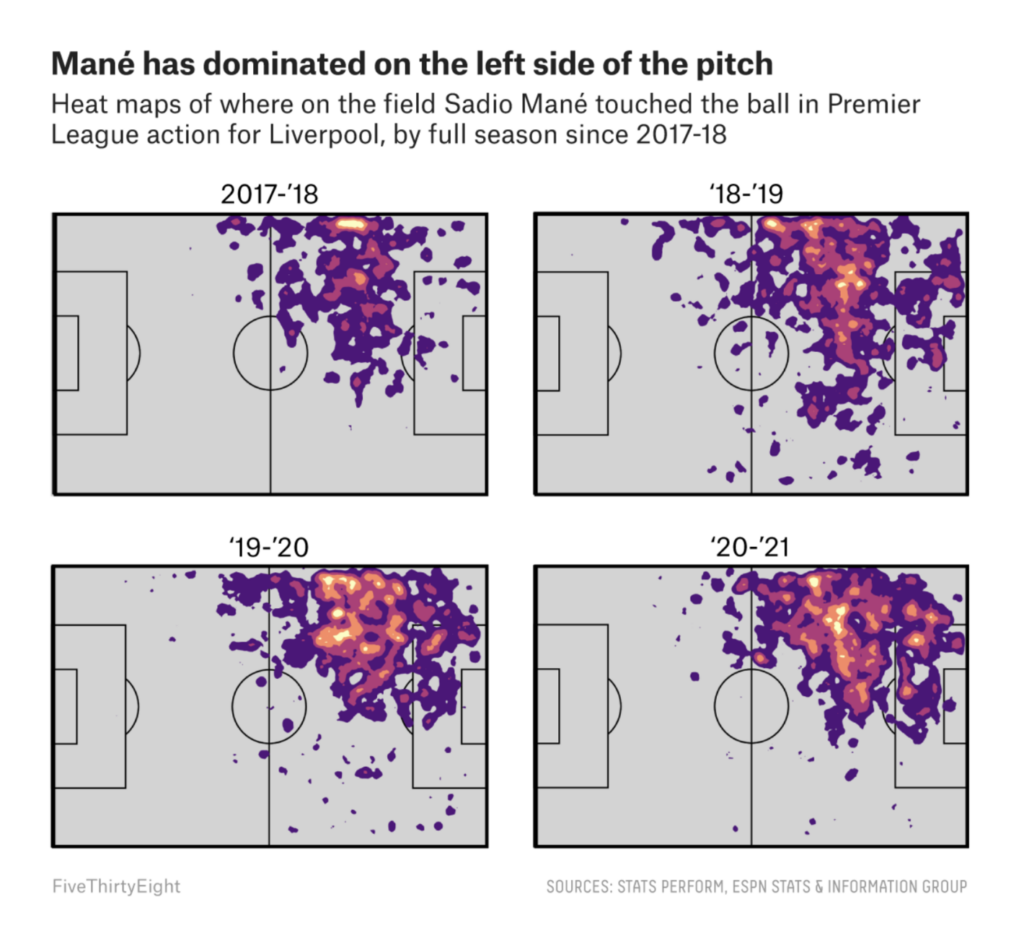
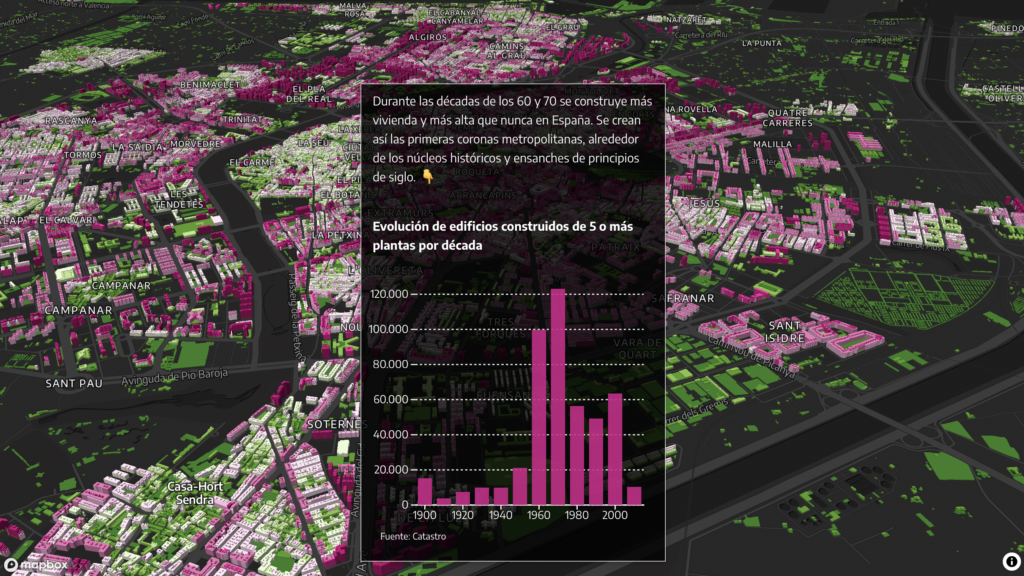

Other charts covered everything from racial inequality to used car exports to judicial conflicts of interest:
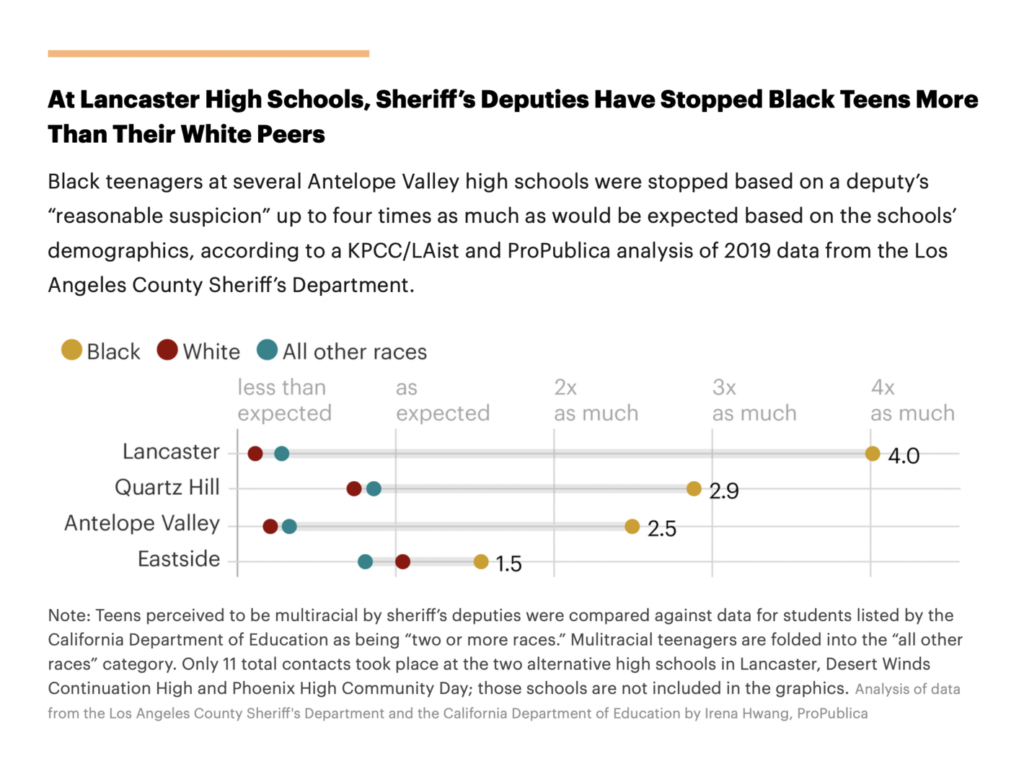

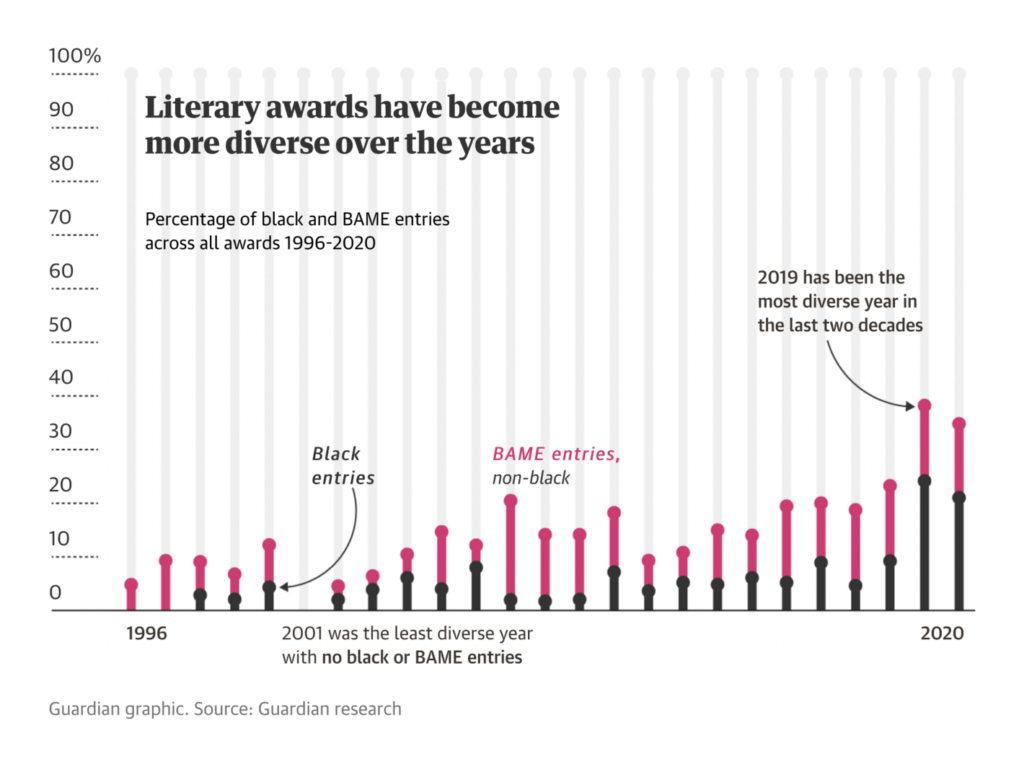
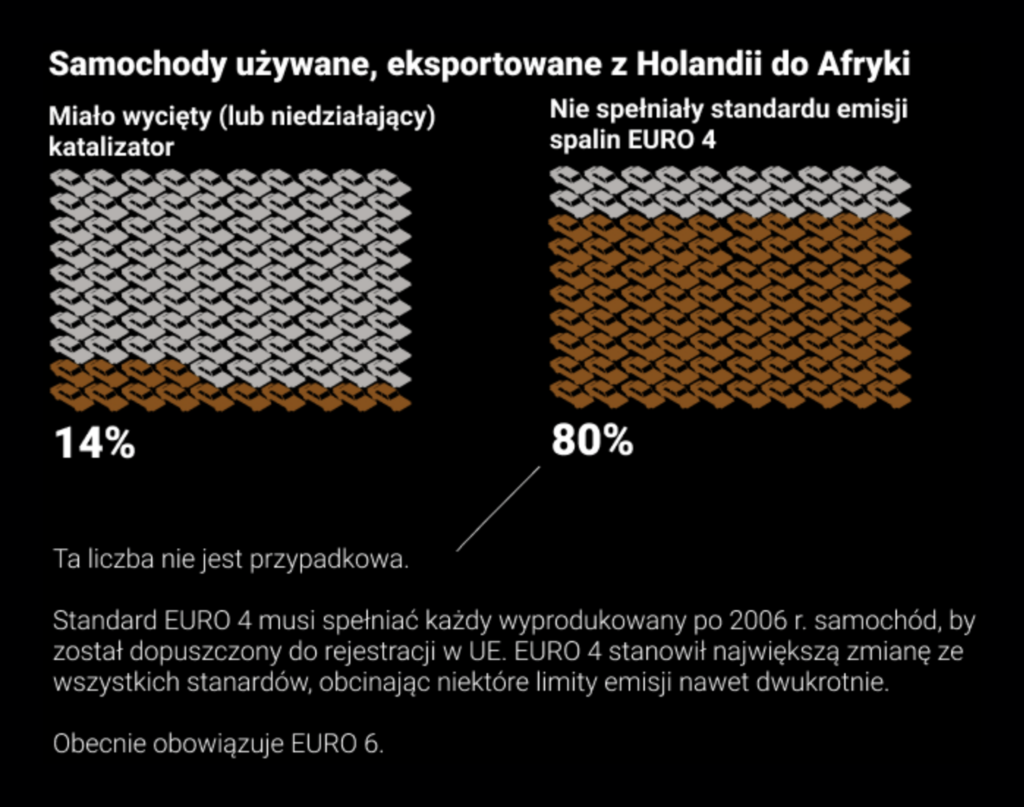
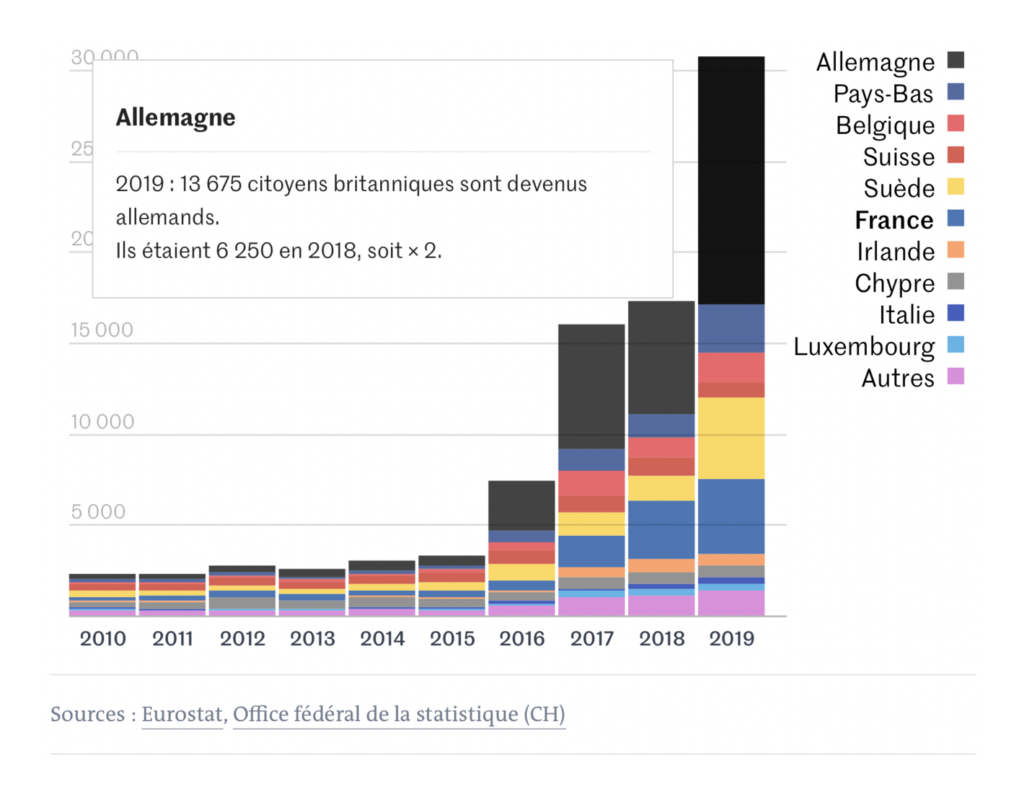
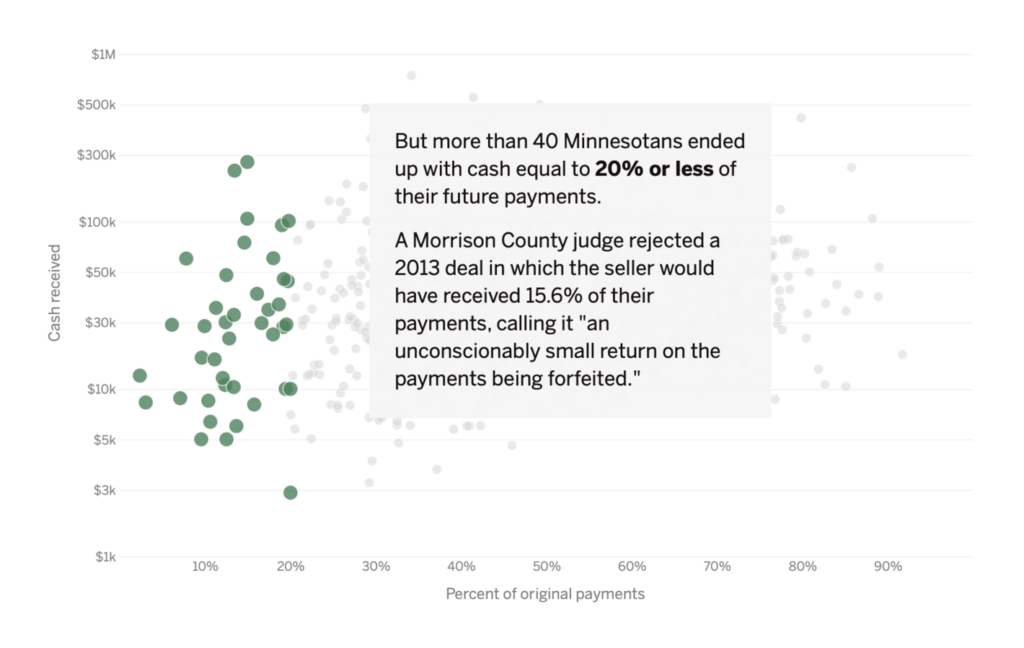

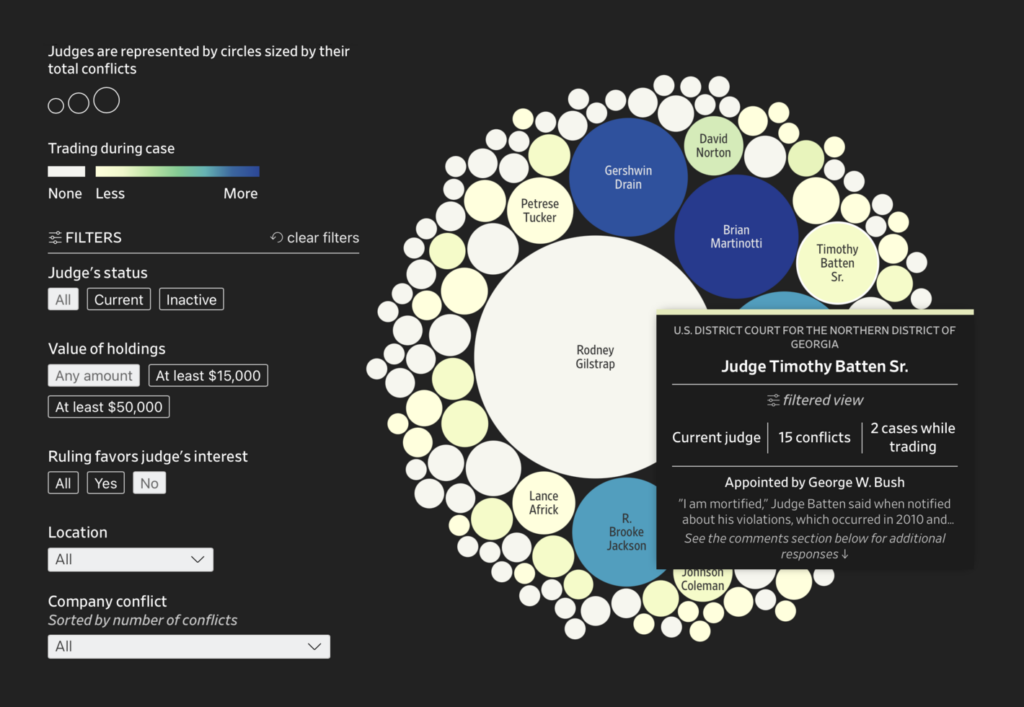
What else we found interesting





Help us make this dispatch better! We’d love to hear which newsletters, blogs, or social media accounts we need to follow to learn about interesting projects, especially from less-covered parts of the world (Asia, South America, Africa). Write us at hello@datawrapper.de or leave a comment below.




Comments